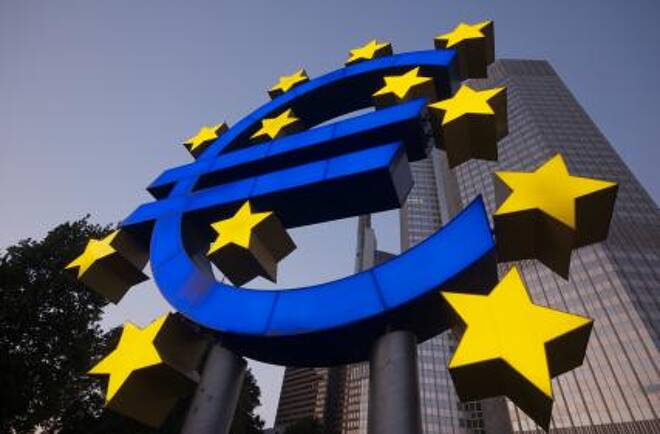Advertisement
Advertisement
EUR/USD Falls after Draghi Calls Inflation “Excessively Low”
By:
After early session strength, the EUR/USD reversed to the down side, following bearish comments from European Central Bank President Mario Draghi. The
Today’s reaction shows just how sensitive the Euro is to any negative comments. It also indicates that the short-term rallies are just short-covering, designed to alleviate the selling pressure, but also to set up the next shorting opportunity.
Today, the Bank of England policymakers decided to keep its benchmark interest rate at a record low. Policymakers debated over data which showed the weakening Euro Zone economy weighing on the U.K. economy as well as domestic growth reports showing signs of losing momentum.
BOE President Mark Carney most likely argued for more time for the economy to recover before starting to raise rates. The nine-member Monetary Policy Committee was probably split like it has been during the last two meetings. The market’s weakness reflected traders decreasing bets of a rate increase in early 2015.
December Comex Gold futures were underpinned early due to the weaker U.S. Dollar, but the market began to weaken after the U.S. posted better than expected weekly unemployment claims. Traders were looking for a reading of 291K versus the actual figure of 287K.
Gold weakened further after Draghi’s bearish comments about the Euro Zone economy. His comments drove the Euro lower and the dollar higher, giving bearish traders a fresh reason to renew the pressure on the dollar-denominated gold market.
Support for November Crude Oil futures continued to erode on Thursday, following yesterday’s bearish Energy Information Administration supply and demand report. Overproduction by the U.S., Russia and Saudi Arabia had been the main issue, but the slowing global economy has jumped to the forefront because it is likely to lead to a drop in demand.
About the Author
James Hyerczykauthor
James Hyerczyk is a U.S. based seasoned technical analyst and educator with over 40 years of experience in market analysis and trading, specializing in chart patterns and price movement. He is the author of two books on technical analysis and has a background in both futures and stock markets.
Advertisement
